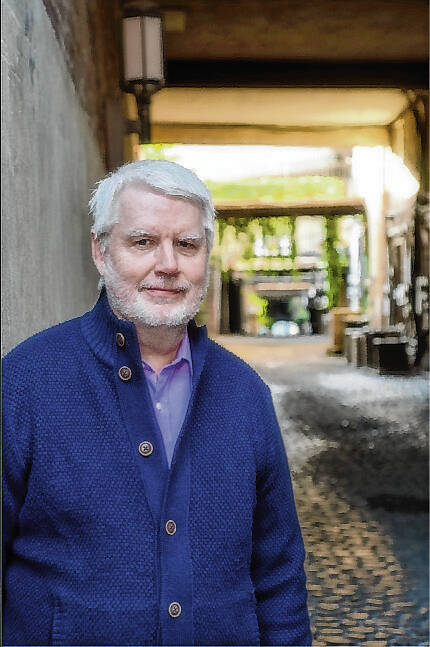Americans of my generation were born in the early years of the Cold War, and, as the word “cold” suggests, our time in history seemed frozen. Yes, maps of the world had to be altered periodically to accommodate revolutions and other political upheavals in Africa, the Middle East, Asia, and Latin America, but mostly the world was divided between the Soviet bloc and its allies and Western-oriented democracies led by the U.S.
Tensions in the Cold War fluctuated, but the fact that the dividing line between the two superpowers was labeled the “iron curtain” points to how stable that frozen world seemed.
I doubt if many of my generation of baby boomers appreciated how differently our grandparents felt about history. They lived through, and in some cases died in, two world wars, upheavals that made the future seem very uncertain. Fewer than 25 years after Germany’s defeat in World War I, our grandparents witnessed European nations fall like dominoes under Hitler’s seemingly unstoppable advances. They witnessed Japan becoming the major power in Asia, only to be defeated at great cost by Allied forces, even as something new was being born in China.
For the grandparents of my generation, history wasn’t frozen, and the dividing lines between nations weren’t made of iron. They’d seen maps change in an instant, and I have wondered, despite the threat of nuclear annihilation during the Cold War, if my grandparents didn’t envy the world’s relative stability in which my generation was born and in which we grew up.
Now that I am a grandparent, I find myself wondering what kind of world my grandchildren will inherit. Perhaps that is why I can be reading a seemingly benign article only to be caught up short by a sentence or paragraph that terrifies me about my grandchildren’s future.
This happened to me recently when reading an article in the New York Times about Guam and other islands in the Pacific. The article referenced a memo written by General Mike Minihan, America’s top military officer in the Indu-Pacific region, in which Minihan predicted that China could invade Taiwan in the next six years. Even more alarming is this comment by him: “My gut tells me that we will fight in 2025.”
The “we” is to be understood as China and the U.S. While it’s tempting to dismiss Minihan as an alarmist, anyone paying attention to Xi Jinping knows that he has declared Taiwan’s “reunification” with mainland China to be non-negotiable. In response, President Biden recently stated that the U.S. will support Taiwan with military personnel if China attacks the island.
2025 is just two years in the future, and tensions are escalating as we draw closer to that date. And before that date is our next presidential election. It’s a no-brainer that every candidate will promise to stand by Taiwan. There will be a lot of saber-rattling, a lot of talk about protecting democracy.
I’m not sure that kind of talk will have any effect on Xi Jinping. He’s shown his determination to project his will by his treatment of the Uyghur Muslim minority and his crackdown on Hong Kong. Compromise does not seem to be in his vocabulary. Furthermore, Xi likely suspects, after Iraq and Afghanistan, that Americans are war-weary. He also believes that the U.S.’s ability to dominate world affairs is weakening, that we are an empire in its last stages.
It is hard to see what would change Xi Jinping’s mind on Taiwan. And it’s harder to estimate to what extent and how long our government would stand by Taiwan if waves and waves of troops from mainland China were to descend on that island. Would there be a wider war in the Pacific region? Would nuclear weapons be on the table?
In all this uncertainty, the one thing I am certain about is that this is not the future I wished for my grandchildren. They deserve better. Let’s not waste the next two to six years we have to make that brighter future possible.
David Carlson of Franklin is a professor emeritus of philosophy and religion. Send comments to [email protected].





